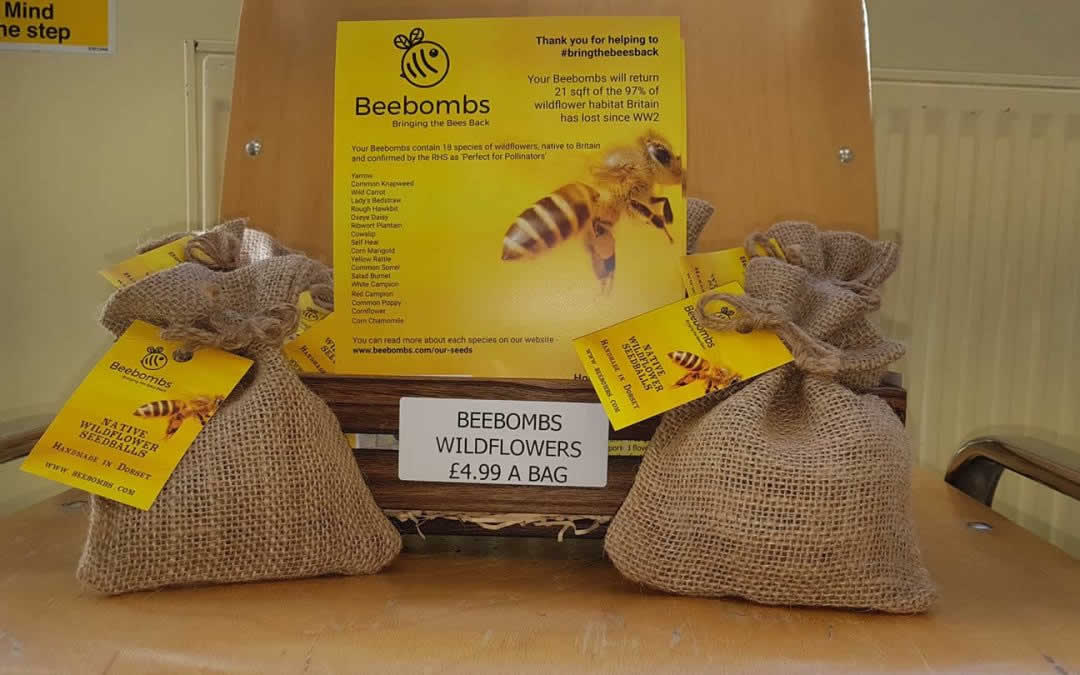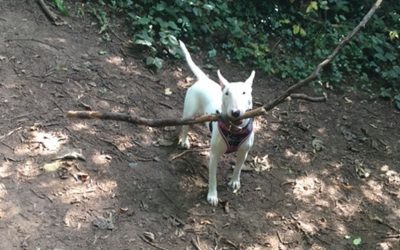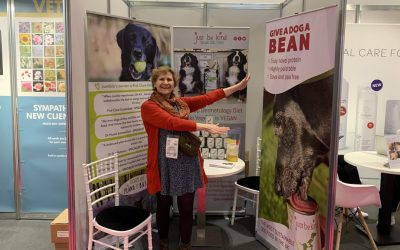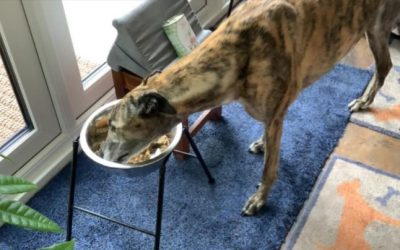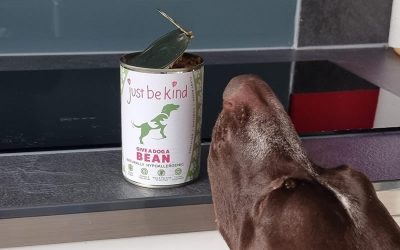It has been shown very recently that the use of regular flea drops on our pets is having a disastruous effect on our fragile ecosystem – killing off bees, our river life and our insects! With all the research I put into finding the ideal plant-based diet for our dogs, I came across some alarming articles that really concerned me as a vet.
The first was an article in January 2020 stating that France had become the first country to ban the use of Neonicotinoids pesticides as they kill the bee population. I was on my way to consult the very next day and was horrified to find that the one pesticide they mention – Imidacloprid is the main component of Advocate, Advantage, Advantix, Bob Martin flea drops etc.
We use these on a daily basis on our pets!
SO many practices up and down the country use these regularly and it made me rethink every spot on application that we use on our pets as being disastruous to our fragile ecosystem – expecially the ‘overuse’ of these flea drops where companies sell them as monthly subscriptions for owners thinking they are doing the right thing for their pet, but all they are doing is breeding resistance amongst the fleas and killing off the local insects that their cats and dogs are coming into contact with!
Even worse is a new start-up company that sends out monthly treatment of flea drops to clients with very heavy marketing (they had posters up all over the London Underground last year to get their business up and running) or Pets at Home monthly subscriptions for preventative treatment for your pets as the products they sell contain Fipronil – the active ingredient in Frontline. A quick Google search on the toxicity of Fipronil came up with this (on Wikipedia) –
Ecological toxicity
Fipronil is highly toxic to crustaceans, insects and zooplankton, as well as bees, termites, rabbits, the fringe-toed lizard, and certain groups of gallinaceous birds. It is also highly toxic to many fish, though its toxicity varies with species. Conversely, the substance is relatively innocuous to wildfowl, and earthworms.
Just writing this post is making me feel quite weak and ill as I know how as a vet for 25+ years I have encouraged the use of all of these insecticides in our pets and now realise that every tube used has caused a decline in our fragile ecosystem – killing off enormously valuable bees, termites, earthworms, fish etc
We were warned in January 2018
This article came out in January 2018 that should have had all of us reacting – “Researchers have discovered significantly high levels of the chemical imidacloprid in rivers and streams in the remote Scottish Cairngorms mountains, the Ouse in Bedfordshire and Lincolnshire’s River Ancholme. … The most likely source of pollution in the Cairngorms is a treated dog entering the stream.”
And finally in March 2020 vets are listening!
What can be done about it?
Firstly now that as pet owners you are aware of this danger of flea treatment on our pets, PLEASE STOP USING IT! Explain to your vets that you no longer wish to use any form of flea drops or collars on your dog or cat (or rabbit), but prefer to rather use one of the oral treatments or monthly tablets available such as Credelio, Bravecto (in dogs – not cats as is topical in cats) or Nexgard Spectra if your pet suffers from a flea allergic dermatitis or if live fleas are seen on your pet. Every drug carries risks and we give Nexgard Spectra to Ruff monthly as it also kills worms but it too has some nasty side-effects in some dogs.
If your pet does not suffer from fleas, then please do not treat unnecessarily just because you are able to get a product cheaper online and they offer discounts if it is a subscription – any treatment is dangerous to our fragile ecosystem that we need to fight for.
Big companies are NOT on our side as there is so much profit in flea medication, so please let us each of us be accountable for how we treat our pets. Please be aware that your vet may not yet know these statistics as the revelation of the dangers are very new; so if you could gently explain this to them the next time you visit your practice and are offered flea drops of any kind!
Steve Garland, entomologist and Chair of the Wildlife Trusts’ policy setting body for England said: “I really believe that the catastrophic decline of insects can be reversed by drastically reducing the use of chemicals in the environment and creating strong Nature Recovery Networks to give them space to live and thrive in safety.” (Goulson, 2019).
What else can we do to look after our bees, insects, hedgehogs and birds?
Stock Beebombs at your business
Bring the bees back!
Stop using the weed killer Roundup in your garden
The original Roundup used to kill weeds contains Glysophate that also kills off all insects and bees in your garden!
Rather choose Roundup No Glysophate that contains Acetic acid which is not fatal to the insects we so need to preserve, or even better just use vinegar on those weeds!
Practical ways to attract ground nesting bees in your garden
Spread the message
Please make everyone you know who has pets aware of the dangers of Spot on flea treatment or flea collars in pets – as individuals, we can make a very big difference!
(Imidacloprid is highly toxic to plankton. It has caused the collapse of fishing stocks in parts of Japan. The same drug is used in pets against parasites and can easily get into rivers and lochs from dogs who swim. See Vet. Rec. 25/01/2020 Volume 186 p97 doi: 10.1136vr.m110.)

SURGE IN SALES of Soya-Free Premium Vegan Dog Foods!
We have experienced a surge in sales of all our top selling foods such as Solo Vegetal, Green Crunch, Give a Dog A Bean and Greta SOLO VEGETAL 10KGS BACK IN STOCK!!
Study Of Twins Shows Benefits Of Plant-Based Diet
A ‘Groundbreaking’ Study Of Identical Twins Finds Benefits Of Plant-Based Diet And Same In Dogs!
Give A Dog A Bean is Transformational for Maya!
“This new canned food has been nothing short of transformational for Maya”
Millie loves Gold Dust Joint Supplement
She just loves the golddust, its wonderful, there is a definite change in her, much more bouncy almost like her young self
We share the same gut microbiome as our dogs!
Dr Arielle speaks at Vegfest London about the similarities between us and our dogs on a plant-based diet in reducing inflammation and healing auto-immune conditions
Vet’s dog transforms on Solo Vegetal
But now, since I started Solo Vegetal I have consecutive MONTHS of solid motions! It really has made a big difference to Polar’s life and my family
London Vet Show Highs and Lows
I returned home emotionally drained, but also feeling so much more positive about the future of plant-based dog nutrition with the contacts that were made
April just loves Give A Dog A Bean!
I have never seen such a manic reaction from two lazy dogs, they scoffed Give A Dog A Bean as if this was the first meal they’ve had in a long time
Two Positive Talks In One Week!
Dr Arielle Griffiths will be speaking at this year’s London Vet Show about the benefits of plant-based dog nutrition AND at Vegfest on Saturday where she will speak amongst plant-based doctors
Duke the Weimeraner with IBS is transformed
Without wanting to sound dramatic, Solo Vegetal has literally saved and brought our boy back
A 10th Study In Favour Of Plant-Based!!!
Yet another paper providing evidence that a nutritionally sound plant-based diet WILL benefit our dogs
Give A Dog A Bean is SO tasty!
“Boston loved the tinned food and woofed it down in one go. It’s actually the best smelling dog food ever. Impressive stuff!”


